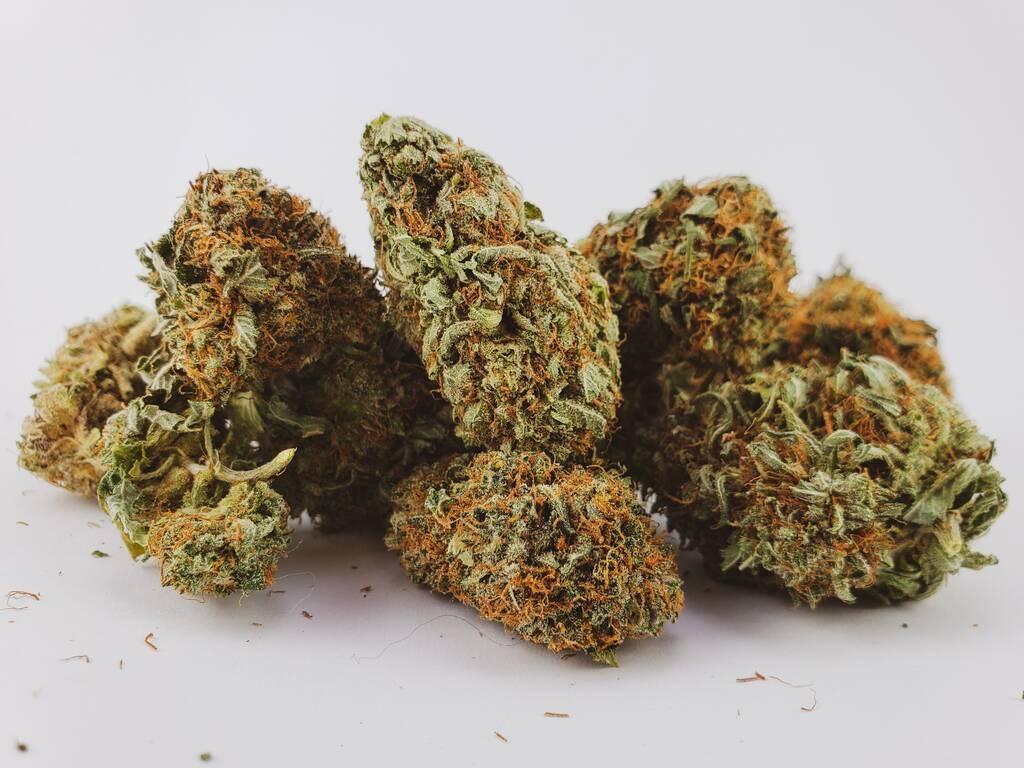A group of Republican Senators sent a letter today to the Drug Enforcement Administration (DEA) requesting they reject a request to reschedule marijuana.

US Senator Mitt Romney (R-UT) today led his Foreign Relations Committee colleagues, Ranking Member Jim Risch (R-ID) and Senator Pete Ricketts (R-NE), in a letter to the Drug Enforcement Administration (DEA) Administrator Anne Milgram “highlighting concerns over HHS’s recommendation to reschedule marijuana from a schedule I to schedule III-controlled substance.” The DEA is currently conducting a review of whether or not marijuana should be moved to Schedule III.
Specifically, they argued that efforts to reschedule marijuana “should be driven by facts, not the administration’s favored policy, and questioned whether doing so would violate the Controlled Substances Act and U.S. treaty obligations under the Single Convention on Narcotic Drugs.”
“As members of the Senate Committee on Foreign Relations, we write to underscore the Drug Enforcement Administration’s (DEA) duty under the Controlled Substances Act (CSA) to ensure compliance with the United States’ treaty obligations under the Single Convention on Narcotic Drugs (Single Convention),” the senators wrote. “Any effort to reschedule marijuana must be based on proven facts and scientific evidence—not the favored policy of a particular administration—and account for our treaty obligations.”
“In prior rescheduling proceedings, the DEA has determined that section 811(d) requires it to classify marijuana as a schedule I or II drug in order to comply with our treaty obligations under the Single Convention,” the senators continued. “It is important that the DEA continues to follow the law and abide by our treaty commitments.”
The full text of the letter can be found below.
Dear Administrator Milgram,
As members of the Senate Committee on Foreign Relations, we write to underscore the Drug Enforcement Administration’s (DEA) duty under the Controlled Substances Act (CSA) to ensure compliance with the United States’ treaty obligations under the Single Convention on Narcotic Drugs (Single Convention). Any effort to reschedule marijuana must be based on proven facts and scientific evidence—not the favored policy of a particular administration—and account for our treaty obligations.
In 1967, the Senate ratified the Single Convention by a vote of 84-0. As a party to the Single Convention, the United States must impose certain controls on the drugs covered by the treaty, one of which is marijuana. The CSA implements those treaty obligations in U.S. domestic law, and section 811(d) requires the Attorney General to place marijuana in the schedule that he or she deems most appropriate to carry out the United States’ obligations under the Single Convention.
Marijuana is controlled under the Single Convention—which is not surprising given its known dangers and health risks—and the United Nation’s International Narcotics Control Board (INCB) has fiercely criticized efforts to legalize marijuana in other countries as a violation of the treaty. Just last month, researchers found that daily marijuana use is associated with a 25% increase in the risk of heart attack and a 42% increase in the risk of stroke. Other studies have linked marijuana use with serious psychotic consequences, including schizophrenia and bipolar disorder.
In prior rescheduling proceedings, the DEA has determined that section 811(d) requires it to classify marijuana as a schedule I or II drug in order to comply with our treaty obligations under the Single Convention. It is important that the DEA continues to follow the law and abide by our treaty commitments. Accordingly, we request a response to the following questions by April 12, 2024:
In 2016, the DEA under the Obama Administration declined to remove marijuana from schedule I and acknowledged the limitations of rescheduling marijuana under section 811(d) of the CSA and the Single Convention, concluding that “in accordance with section 811(d)(1), DEA must place marijuana in either schedule I or schedule II.”
Does the DEA still hold the position that marijuana must be a schedule I or II drug to comply with section 811(d) and the United States’ treaty obligations? If not, why has the DEA changed its position?
The United States Court of Appeals for the D.C. Circuit has also stated that “several requirements imposed by the Single Convention would not be met if cannabis and cannabis resin were placed in CSA schedule III, IV or V.”
Does the DEA believe the United States’ obligations under the Single Convention can be met if marijuana is placed in schedule III, even though the D.C. Circuit stated otherwise?
In the course of conducting its official review of HHS’ rescheduling recommendation, is the DEA consulting with the Department of State about the United States’ treaty obligations under the Single Convention regarding marijuana and any diplomatic implications of a rescheduling decision?
Has the DEA consulted with key counterdrug partner nations about our shared obligations under the Single Convention and their views regarding a potential rescheduling by the United States?
What impact would a potential failure by the United States to uphold its treaty obligations have on our ability to ensure other countries continue to enforce their own drug controls under the Single Convention—including for deadly narcotics like fentanyl?
We appreciate your attention to this important matter and look forward to your prompt response.








